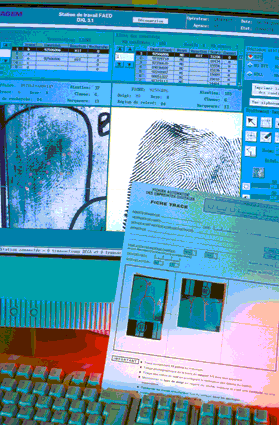
THE MIDDLE EAST
Mission impossible
In the Middle East, the CIA has hurt its friends and
helped its own enemies.
By Gareth Smyth
Beirut
Success has many fathers, goes the old
saying, but failure is always an orphan. Since September 11th, both
politicians and former CIA operators have been pointing the finger
of blame for the apparent intelligence lapse that failed to detect
such a colossal attack.
On Capitol Hill, congressmen are
whispering against George Tenet, the CIA director. Bob Baer, an
agent who resigned in 1997, has argued that the United States has
failed to appreciate the importance of work on the ground. The CIA
branch chiefs have never set foot in the Middle East, said Baer.
They didnt speak Arabic, didnt speak Persian. The Beirut office
has basically been closed since 1990-1991.
Second thoughts. Within the Middle
East, people are more likely to see such intelligence failures as
rooted in a lack of understanding of the Arab world and the
distortion of US policy by its support for Israel. America can
never really be the impartial arbiter if it always leans one way,
said a leading Lebanese businessman who regularly visits the United
States. But September 11th can be good for the Arabs if it means
that the Americans really reconsider their approach to the region.
A history of twists and turns, with
the CIA often as a blunt axe, have made it very difficult for the
United States to be seen as a reliable, or even honest, presence in
the Middle East. The resentment is not confined to Arabs. Nine years
ago, Massoud Barzani, who has rarely ever traveled away from
Kurdistan, agreed to visit Washington with a deputation of the
opposition Iraqi National Congress (INC). Massoud, used to the
traditional baggy trousers and cummerbund, looked uncomfortable in
an Armani suit at receptions, but the INC was keen to create the
right impression with senators and opinion-formers. Nonetheless,
Massoud refused an invitation to visit Henry Kissinger.
Despite all the compromises of Kurdish
politics, Massoud had never forgiven the former secretary of state
for engineering the 1975 Algiers agreement between Iraq and Iran,
when the two sides suddenly settled long-standing differences and
felt free to deal with their internal problems, including the
Kurds. Algiers came just two years after Massoud went to Washington
to meet Richard Helms, the CIA director, and Al Haig, the White
House chief of staff a meeting that led to both CIA and Israeli
advisers moving into northern Iraq to help the Kurds. Algiers left
the Kurds high and dry, ending a generation of Kurdish revolt led by
Massouds father, Mulla Mustafa, whose broken heart sent him into
exile and an early death. Even if those in Washington forgot
quickly, Massoud did not.
The relationship between the CIA and
Saddam Hussein is a long one. In 1963, the Americans plotted with
the Baath against Abdel Karim Kassem, a man who, in the words of
the writer Said Aburish, retains more of the affection of the Iraqi
people than any leader this century. The CIA supplied lists for the
Baath to kill leftists and communists, and Washington flew arms to
Kirkuk to use against the Kurds.
In Aburishs biography of the Iraqi
leader, the author quotes many anti-Saddam Iraqis including Ahmad
Chalabi, leader of the INC on CIA cooperation with the second
Baath coup in 1968. Later, in the 1980s, the United States and
Britain helped arm Saddam in his confrontation with Iran only to
turn against him over the 1990 Kuwait crisis. When in 1991 the Iraqi
people rose against Saddam, the United States was fearful that
change would put its majority Shiites and thus Iran in power,
and US forces stood by as the Republican Guard crushed the
rebellion. The CIA then worked on sponsoring a coup in Baghdad, a
strategy that crumbled in 1996 when Iraqi intelligence infiltrated a
conspiracy led by the ex-Baathist Iyad Alawi. Having rounded up
hundreds of officers, the mukhabarat sent a message to the CIA team
in Amman: We have arrested all your people. You might as well pack
up and go home.
The CIAs half-hearted support for the
INC also ended in 1996, when Saddam exploited Kurdish in-fighting to
crush an INC presence in the Kurdish-controlled zone in the north.
As Iraqi tanks moved in, the CIA fled and left the INC people to
their fate. Washington washed its hands of the affair, and Chalabi
noted that CIA officials are not known for their veracity.
Disasters. Of all the disasters
to befall the agency in the Middle East, the kidnapping and death in
captivity of its Beirut bureau chief, William Buckley, was one of
the most painful. Buckleys kidnapping in 1984 came less than a year
after a pickup truck loaded with a ton of TNT destroyed the American
embassy in West Beirut, killing 17 Americans including Robert Ames,
the CIAs senior Mideast analyst.
No one in Lebanon was surprised, then,
when the United States recently included three Lebanese on its list
of most wanted terrorists. Best known among them was Imad
Mughniyeh, allegedly the mastermind behind the 1983 attack on the US
embassy, the bombing the same year of the US Marine base in Beirut
and the 1985 hijacking of a TWA flight to Lebanon.
In the United States, Mughniyeh is a
terrorist, but many in his home village of Tair Debba in south
Lebanon see him as a hero. He defended his land. He raised our
heads high, said Rajah Faqih, a cousin. Why do they want to punish
him for it?
The Lebanese government, which has
tried to draw a line under the war of 1975-1990, has not wanted to
extend the current debate over the difference between resistance
and terrorism. But few in the Muslim or leftist camps have ever
viewed as neutral a history of US intervention that goes back to
1958 in the midst of revolution in Iraq when 10,000 troops
arrived to support the Christian president, Camille Chamoun, against
leftist forces.
The belief today that improved
intelligence can overcome terrorism may be an attractive one to
some in Washington, but it carries little weight in the Middle East.
Terrorism searches for a cover, President Bashar al-Assad told
Tony Blair on his visit to Damascus. This cover may be political,
social or economic. What is important is to strip the terrorists of
their cover, and this can only be done by dousing the flash points
of tension.
The occupied Golan remains at the
heart of Syrian policy just as support for Israel remains at the
heart of US policy towards the Middle East. Many analysts seem to
believe that Washington needs Israeli intelligence, but for Israel
to take this opportunity to move against Palestinian terrorists
will heighten opposition to the United States in the Muslim and Arab
world.
It didnt take long for the press
corps accompanying the British prime minister to realize that Blair
and Assad were talking at cross purposes. This is a matter of policy
and practice, not espionage and counter-espionage. Moving beyond a
dialogue of the deaf requires a different kind of intelligence.
| 


